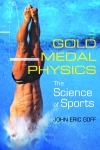Guest post by John Eric Goff
Each summer, the world’s elite cyclists compete in the one race more prestigious than any other–the Tour de France. Most of us know how to ride a bike; some of us ride our bikes on a regular basis. A tiny fraction of us may even be such serious cycling enthusiasts that we’ll use vacation time to notch a couple hundred kilometers on a bicycle that could have set us back as much as five grand. Tour de France competitors are on an entirely different plane of commitment and athletic ability.
The 2012 Tour de France begins this Saturday (June 30th) in the Belgian city of Liège. For ten consecutive days, cyclists must compete on fast downhills, grueling climbs, and under a hot sun or in the face of wind and rain. By the time cyclists reach the French city of Besançon on Monday, July 9th, having just completed that day’s individual time trial, they will have traversed just over 1,625 kilometers (about 1,010 miles). Want to know the great part of that fact? When riders rest on Tuesday, July 10th – just one of two days of rest – they will not yet have reached the halfway point in the race, and they will have yet to compete on any of the major mountain stages!
Look at the image below, which I took from the Tour de France website (www.letour.fr).
After a day’s rest, imagine getting up on the morning of Wednesday, July 11th, knowing that the above is waiting for you as you compete in Stage 10. After 130.5 kilometers (81.1 miles) of cycling (numbers on the horizontal are “distance biked” in kilometers), you will leave the French commune of Béon and begin a climb that will take you 1,246 meters (4,088 feet) higher in elevation (numbers in meters are elevations above sea level) into the Jura mountains at the famed Col du Grand Colombier pass, which is 1,501 meters (4,925 feet) above sea level. Oh, but you still have 43 kilometers (27 miles) left!
Think about finishing Stage 10, having just burned about 8,000 calories, and knowing that another mountain stage with even higher elevations awaits you on the morrow. When it’s all said and done, one cyclist will stand above all others on Sunday, July 22nd, on the Champs-Élysées in Paris as the 2012 Tour de France champion. As you watch that yellow-jersey-clad individual breathing heavily, know that he just put nearly 3,500 kilometers (almost 2,175 miles) on his bike. Know, too, that you will be watching a person who is the absolute best in the world at what he does.
I now want you to imagine something else. Think about the enormous complexity in a three-week race like the Tour de France. Ponder all the hairpin turns, cobblestone streets, sprints, climbs, lightning-fast downhills, crowded pelotons, wind, rain, crashes, and (yes) nature calls relieved while on bikes. How easy to do you think it is to predict the winning time of each stage of the Tour de France? It’s actually not as impossible as you might think.
I make my living as a physics professor who researches the sports world. Sitting in my modest office on the campus of Lynchburg College in Lynchburg, Virgina, I use a little paper and pencil work and a lot of computer work to predict each stage’s winning time. The profile data like you see above for Stage 10 of this year’s race provide me with a beginning. The unchangeable laws of physics and published human-performance research are my tools for taking profile data and churning out predictions.
My Tour de France work began back in 2003 when a Lynchburg College physics graduate, Benjamin Hannas, got me to think about modeling the most famous of the Grand Tour cycling events. Three years of successful modeling led to a hiatus in cycling research as I focused on soccer-ball aerodynamics. In June of 2011, I started a sports physics blog and decided to return to Tour de France modeling by sticking my neck out each day with a prediction of the next day’s winning time. I only missed the winning time of one stage of the 2011 race by more than 8%, and I predicted the winning times for six stages to better than 1%.
I invite you to follow my predictions for this year’s Tour de France on my blog. My research student, Brian Ramsey, and I are just about ready to start posting predictions. For three weeks each summer, I get as much thrill watching elite athletes performing at the pinnacle of their métier as I do from hearing the announcement of each day’s winning time–and seeing how closely my model predictions came to matching reality.
 John Eric Goff is a professor of physics at Lynchburg College. He is the author of Gold Medal Physics: The Science of Sports, in which Chapter 4 focuses on Tour de France modeling.
John Eric Goff is a professor of physics at Lynchburg College. He is the author of Gold Medal Physics: The Science of Sports, in which Chapter 4 focuses on Tour de France modeling.

